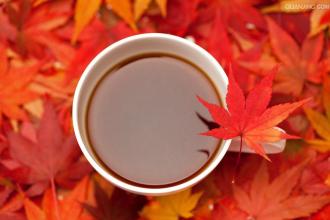Introduction to the Fine Coffee Bean Manor with the characteristics of Java Coffee Flavor
Java has a mild, humid and diverse climate that makes it a harvest season all year round, with different kinds of coffee ripening at different times. What they grow is the unique quality of Java coffee beans, the coffee ground by this coffee bean, rich taste, endless aftertaste, can be called high-quality coffee. Many people equate "Java coffee" with "high quality" and "good taste".
The world coffee is divided into two series, one is the "hard" coffee represented by Brazil, which has a strong flavor, and the other is the "soft" coffee represented by Java coffee, which has a light flavor. The difference lies in the altitude of the producing area and the planting method, the coffee is planted in the hilly red soil is more extensive, Java is produced in the mountain black soil intensive cultivation.
Java coffee has a kind of bitter experience, it is as astringent as life, but bitterness is necessary in life, and the last fragrance at the root of the tongue is a thorough recollection of the past. Looking back on the hardship in the past, I will feel its sweetness and warmth even more, and I want to let the mood stop in the consciousness that begins to awaken for a long time. Suffering is pain, clear and quiet, the last fragrance has become a kind of spiritual victory.
Java coffee is famous in the early years, which refers to Arabica coffee formerly grown on the island of Java. It has a strong aroma, low acidity, taste lubrication, mixed with mocha coffee, the resulting "Java mocha mixed coffee" was once popular and became synonymous with top coffee.
At that time, Java coffee sold to Europe was a very special kind of coffee. At that time, it was shipped to Europe and the United States by sailboat, and the distance was long and the speed was slow, so it took a lot of time to transport. In this case, the coffee seems to have undergone a special fermentation and has a very unique taste.
Later, when the ship replaced the sailboat, due to the shortened delivery time, people drank relatively fresh coffee beans. But people who are used to drinking Chen beans are not used to the fresh taste, so they desperately pursue old Java coffee, so that the Indonesian government and some businessmen deliberately store fresh beans in warehouses for one or two years and then sell them to consumers. In fact, compared with fresh beans, the acidity of aged Java beans is close to zero, but the flavor is more intense. Because of the long storage time, the increase in cost and the limited quantity, Java has always been a hot item in the coffee market. In the 1880s, some profiteers deliberately tampered with some fresh Guatemalan or Venezuelan beans to mimic the high prices of old Java. It is intolerable that profiteers dye coffee beans to make them look more like old Java, but there is no doubt that the dyed chemicals are certainly toxic.
Java produces only a small amount of Arabica beans, most of which were imported from Africa after the rust disaster. This coffee has a strong bitter taste after roasting, but the aroma is extremely light. Although the acidity is low and the taste is delicate, it is rarely used for direct drinking. It is often used to mix mixed coffee or to make instant coffee.
Diseases and insect pests are really a powerful thing. It has greatly reduced coffee production in Brazil and repeatedly influenced the international coffee market. It has also made Sri Lanka, which used to plant coffee trees all over, cut down coffee trees and plant coffee instead. It also makes Java, which is rich in high-quality Arabica coffee, switch to Romsda coffee for fear of diseases and insect pests. Arabica Java coffee, which is regarded as a treasure, has been far away from people's sight, and people's unlimited favor and pursuit of Java coffee has been lost ever since.

Important Notice :
前街咖啡 FrontStreet Coffee has moved to new addredd:
FrontStreet Coffee Address: 315,Donghua East Road,GuangZhou
Tel:020 38364473
- Prev

Introduction to the Fine Coffee Bean Manor with the characteristics of Costa Rica Coffee Variety producing area
The United Fruit Company of the United States took over Keith Industry in 1899 and controlled the production and export of railways and bananas. In 1913, banana exports ranked first in the world. In 1917, F. Tino Granados staged a coup and established a military dictatorship. After Tinoco Granados stepped down, successive rulers were controlled by American monopoly capital. The labor movement sprang up in the 1930s. Founded in 1931, Goth
- Next

Introduction to the unique charcoal-burning Guatemalan coffee varieties and manor characteristics of fine coffee beans
Between 1950 and 1954, the ruling president Jacobo Abens implemented land reform, when big landlords, who accounted for 2 per cent of the country's population, owned about 70 per cent of the country's arable land. Arbens wrote a check for land reform, promising to buy the land held by the big landlords and redistribute it to small farmers. Arbens won the election, and the land reform plan was carried out immediately. For owning land greater than 223
Related
- Detailed explanation of Jadeite planting Land in Panamanian Jadeite Manor introduction to the grading system of Jadeite competitive bidding, Red bid, Green bid and Rose Summer
- Story of Coffee planting in Brenka region of Costa Rica Stonehenge Manor anaerobic heavy honey treatment of flavor mouth
- What's on the barrel of Blue Mountain Coffee beans?
- Can American coffee also pull flowers? How to use hot American style to pull out a good-looking pattern?
- Can you make a cold extract with coffee beans? What is the right proportion for cold-extracted coffee formula?
- Indonesian PWN Gold Mandrine Coffee Origin Features Flavor How to Chong? Mandolin coffee is American.
- A brief introduction to the flavor characteristics of Brazilian yellow bourbon coffee beans
- What is the effect of different water quality on the flavor of cold-extracted coffee? What kind of water is best for brewing coffee?
- Why do you think of Rose Summer whenever you mention Panamanian coffee?
- Introduction to the characteristics of authentic blue mountain coffee bean producing areas? What is the CIB Coffee Authority in Jamaica?

